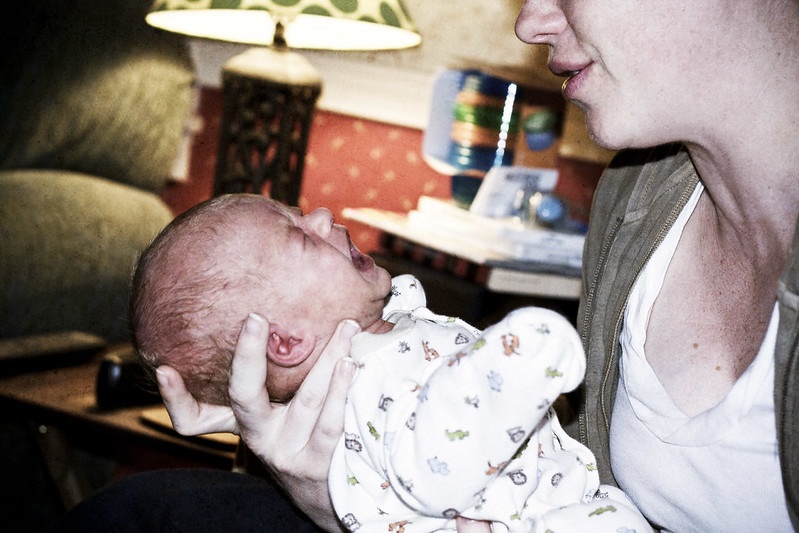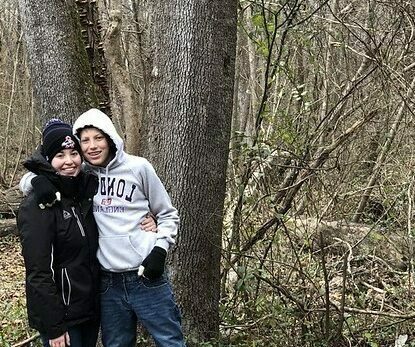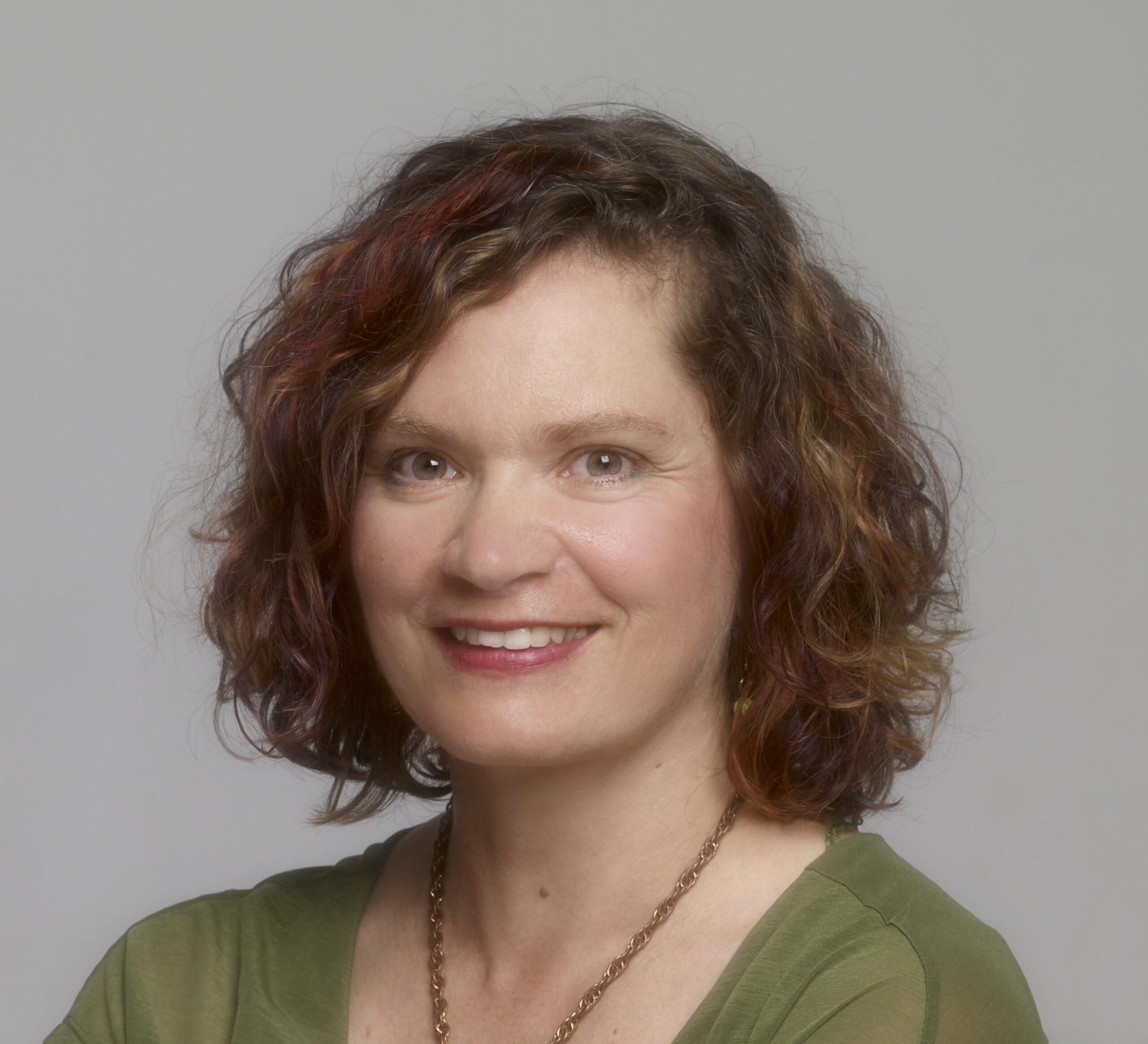Hope for Your Out-of-Control Anxiety
If you feel uneasy or like your anxiety is out of control. There is hope!
In this article
- Sandra’s Story: It’s Just Anxiety
- Why do I wake up feeling anxious?
- Types and Causes of Anxiety
- The Cause of Sandra’s Anxiety
- What Have You Tried to Reduce or Eliminate Anxiety?
- How I Learned to Manage My Anxiety
- 7 Strategies for Reducing and Eliminating Anxiety
- You Are Not Alone!
Sandra’s Story: It’s Just Anxiety

I woke with crushing chest pains. I felt light-headed and worried. Not knowing what was happening, I asked my husband to call an ambulance. They took me to the nearby hospital while my husband packed up our newborn baby and followed me in the car.
After assessing me, a nurse sent me to a curtained-off area to wait for the doctor. I waited and waited. When the middle-aged doctor finally arrived, he looked up from his clipboard and said, “It’s just anxiety.” He seemed annoyed as he explained that my chest pains were caused by anxiety, not by a heart attack. I felt ashamed and alone. I had never been diagnosed with anxiety, so it caught me off guard.
Looking back over my young adult life, I remembered other times I had similar chest pains. I thought of feeling so uneasy and overwhelmed in high school by homework, sports, and volunteer work that I skipped classes and hung out with friends. I also recalled riding my bike to work at a drop-in center worried about meeting the never-ending needs of people in poverty.
Again, the doctor’s words replayed in my head, “It’s just anxiety.” He made anxiety sound trivial. But it was a big deal to me and I didn’t know how to keep my anxiety from getting out of control.
Why Do I Wake Up Feeling Anxious
If you’re like me, you may wonder, “Why do I wake up feeling anxious?” It’s frustrating when you wake in the middle of the night or too early in the morning overwhelmed with worry. Your thoughts are racing and you’re not alert enough to think rationally.
I want to assure you that it’s more than “just anxiety”. Your feelings are real and important. I also want to tell you there is hope! You can do many things to reduce or eliminate your anxiety.
Need Help?
If you need help with your anxiety, contact Peace with God. They will listen to you with compassion and direct you to helpful resources in your area. Or Find Mental Health Resources in the USA or Mental Health Resources Canada.
Types and Causes of Anxiety
According to the internationally recognized Mayo Clinic, “people with anxiety disorders frequently have intense, excessive and persistent worry and fear about everyday situations.”
Mayo Clinic identifies several types of anxiety disorders, including:
- Agoraphobia (fear that causes you to avoid places or situations that may cause you to feel trapped or embarrassed)
- Anxiety caused by a medical condition (symptoms of intense anxiety or panic that are directly caused by a physical health problem)
- Generalized anxiety disorder (worry out of proportion to circumstances)
- Panic disorder/attacks (sudden feelings of intense anxiety or fear that reach a peak within minutes)
- Separation anxiety disorder (a child’s excessive fear of being separated from parents or caregivers)
- Social anxiety disorder (high levels of anxiety and avoidance of social situations due to feelings of embarrassment, self-consciousness and concern about being judged by others)
As you can see from the list above, anxiety can have physical causes like a medical condition. However, it can also be caused by what we believe about a situation and what we tell ourselves.
The Cause of My Anxiety

Fast forward several years when my newborn was a pre-teen and teen. I didn’t sleep well for a bout eight years. I woke in the middle of the night thinking about my child’s struggles and how we could deal with them. I was full of self-condemnation and felt like a terrible mother. The pressures of running my own business also interrupted my nights. Even when I wasn’t thinking about anything in particular, I would wake at around 3 am for 1, 2 or even three hours. I was constantly exhausted.
Desperate for help, I went for a sleep study to find the cause of my night waking and poor sleep. They hooked electrodes up to my head and monitored my brain while I slept in a bed at their lab. In a follow-up meeting with the doctor, he said “you’re anxious.” I recalled the words of the other doctor years earlier, “It’s just anxiety.” I was disappointed and frustrated because I didn’t feel anxious. By then, I was so used to being anxious that I did not recognize or admit to myself how stressful my life was and how worried I was.
What Have You Tried to Reduce or Eliminate Anxiety?
Have you found coping strategies for dealing with anxiety? Maybe you avoid situations that make you feel stressed. Or you drink alcohol to make you feel more confident in social situations. Some people take drugs to numb their intense feelings and stop the destructive voices in their heads.
I get it. You’re doing the best you can to survive. Give yourself some grace. It’s ok to do what you can to survive in the moment.
On a day when you have enough energy to think about the future, choose some strategies that will help you reduce or eliminate anxiety in the long-term.
Don’t rush yourself and try to do it all in one day. Instead, take a tiny step toward being free from anxiety. Then take another one tomorrow.
It is possible to manage anxiety so that it no longer controls your life!
I’ve been in the stranglehold of overwhelming fear and torturing thoughts. Today, I still hear anxiety calling to me like a pack of hungry, howling wolves, but on most days I have the strength and the strategies to silence them.
How I Learned to Manage My Anxiety
Recognizing, treating, and managing my anxiety was a long journey. I took action one tiny step at a time.
Learning to cope with my anxiety included:
- Improving my friendships and increasing supportive relationships
- Going for counselling to deal with childhood trauma
- Taking anti-anxiety medication
- Addressing food sensitivities and improving my diet
- Increasing exercise
- Changing what I told myself (self-talk)
- Receiving prayer for healing
I’m not a doctor or a mental health practitioner. I am a person who has experienced anxiety and benefitted from seeking help from professionals. Below are strategies that helped me reduce and eliminate anxiety. I offer my journey as something to learn from, not medical advice.
7 Strategies for Reducing and Eliminating Anxiety
- Improving Friendships and Supportive Relationships to Reduce Anxiety
All my life I have been a giver. I love to help people. Unfortunately, I allowed my relationships to get out of balance. I had surrounded myself with needy people. I had some healthy friends but had not cultivated deep enough friendships with them to ask for the kind of help I needed. Anxiety and depression broke me. I didn’t know how to go from a casual conversation about everyday life to, “I’m so anxious and depressed I want to kill myself.” Thank God that an acquaintance noticed how depressed and anxious I was. She took the time to ask me questions that revealed the depth of my pain. (She is a trained social worker, so she knew the signs.) This caring woman met with me twice a month for a year to listen and pray with me. Over the past 20 years, I have learned to make my friendships deep and mutual. It takes time and intention to build deep relationships. Today, I have several people I could call in a crisis. I am not alone.
- Going For Counselling to Deal with Childhood Trauma

I have been for individual and couples counselling at times of crisis. I found talking to a trained listener who draws out issues below the surface helpful. When I’m anxious, it’s easy for my thinking to become rigid. I can’t see other viewpoints, and I can’t see solutions to my overwhelming problems. Friends and family may fear offending me. But a counsellor with no stake in my decisions can objectively tell me what he or she sees. Counselling was another strategy for helping me reduce and eliminate anxiety.
- Taking anti-anxiety medication

When I went to my doctor for medication to treat my anxiety, she said, “Medication will not solve all your problems. But it will give you breathing space to deal with them.” These wise words helped me to have realistic expectations of what medication could do for me. Anti-anxiety medication calmed my mind and reduced my stress. But it did not take away the sources of my anxiety. I still had work to do.
- Addressing Food Sensitivities
I don’t remember how I discovered the weird effect that wheat and sugar have on my mental health. When I eat wheat (not gluten) my digestion gets blocked up, AND I get anxious and depressive thoughts, like, “You’re stupid. No one really likes you. You’re going to fail in your business because you don’t really know what you’re doing.” Too much refined sugar has a similar effect, my body aches, my digestive system gets inflamed, and my mental health takes a nosedive.
I have been a lot happier since I gave up wheat and reduced sugar. However, I still cheat sometimes ( and pay the price) because who can resist a cream-filled chocolate donut once-in-awhile? - Regular Exercise
Team and individual sports have been part of my life since childhood. I feel better mentally and physically when I exercise. That has sometimes meant going to the gym for weight-lifting, walking on the elliptical trainer, yoga, Zumba, and fitness classes. At other times, it has meant walking daily and doing fitness routines with a video at home.
The last thing I feel like doing when I wake up is exercising. But I decide the night before to do it and put my exercise clothing on my dresser as a visual reminder. These are some of my tiny steps toward reducing and eliminating anxiety. - Changing My Self Talk
You know that voice in your head that comments on everything you do? The running commentary in your head is called “self-talk”. One of the reasons I was so anxious was that I had destructive self-talk. I told myself things that made me nervous and afraid. I told myself things like, “If my children don’t do well in school, people are going to think I’m a bad parent.” To control my intense anxiety, I helicoptered over my children’s homework assignments, which stressed us all out.

Instead, I learned to reframe my negative thoughts with positive self-talk. For example, “If my children don’t do well in school, people are going to think I’m a bad parent,” became “My children can learn from failure, and I can support them to overcome challenges.”
I also learned to replace negative thoughts with positive phrases from the Bible. When I felt alone and afraid, I repeated to myself God’s promise, “I will never leave you or forsake you.” I also brought to mind affirmations from the Bible like, “Do not be anxious about anything. But instead bring your concerns to God and the peace of God will guard your heart and mind.” - Receiving Healing Prayer
As a Christian, I believe in the healing power of Jesus. I know God loves me and wants the best for me. When my soul gets polluted with fear, unforgiveness and bitterness, it’s time to pray. I ask a friend or spiritual leader to listen to God with me as I release the darkness in my soul. God speaks healing to me and increases my freedom from anxiety and other things that weigh down my soul.
You Are Not Alone!
You may wonder if its time to do something about your overwhelming anxiety. I want you to know that you are not alone and that it is possible to reduce and eliminate anxiety!
I encourage you to take one tiny step toward healing from anxiety. First, call your doctor to investigate medical reasons for your anxiety and to talk about medication. Or book an appointment with a counsellor or psychologist to talk about past trauma and what’s making you feel so anxious. If you’re open to it, ask God for help. You could also explore some strategies that helped me manage my anxiety.
Get Help
If you need help with your anxiety, contact Peace with God. They will listen to you with compassion and direct you to helpful resources in your area. Or Find Mental Health Resources in the USA or Mental Health Resources Canada.

Sandra Reimer is freelancer writer and communication strategist living in Ontario, Canada. She is thankful be free from life-controlling depression and anxiety.


